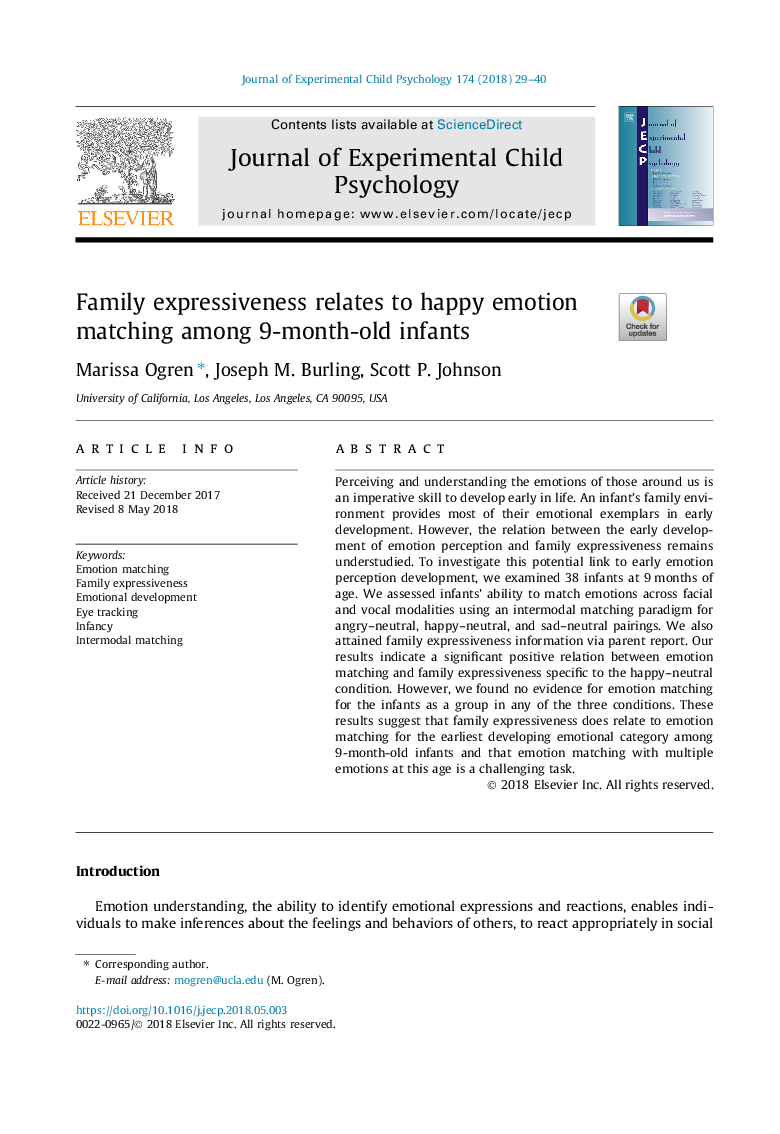| Article ID | Journal | Published Year | Pages | File Type |
|---|---|---|---|---|
| 7273690 | Journal of Experimental Child Psychology | 2018 | 12 Pages |
Abstract
Perceiving and understanding the emotions of those around us is an imperative skill to develop early in life. An infant's family environment provides most of their emotional exemplars in early development. However, the relation between the early development of emotion perception and family expressiveness remains understudied. To investigate this potential link to early emotion perception development, we examined 38 infants at 9â¯months of age. We assessed infants' ability to match emotions across facial and vocal modalities using an intermodal matching paradigm for angry-neutral, happy-neutral, and sad-neutral pairings. We also attained family expressiveness information via parent report. Our results indicate a significant positive relation between emotion matching and family expressiveness specific to the happy-neutral condition. However, we found no evidence for emotion matching for the infants as a group in any of the three conditions. These results suggest that family expressiveness does relate to emotion matching for the earliest developing emotional category among 9-month-old infants and that emotion matching with multiple emotions at this age is a challenging task.
Related Topics
Social Sciences and Humanities
Psychology
Developmental and Educational Psychology
Authors
Marissa Ogren, Joseph M. Burling, Scott P. Johnson,
